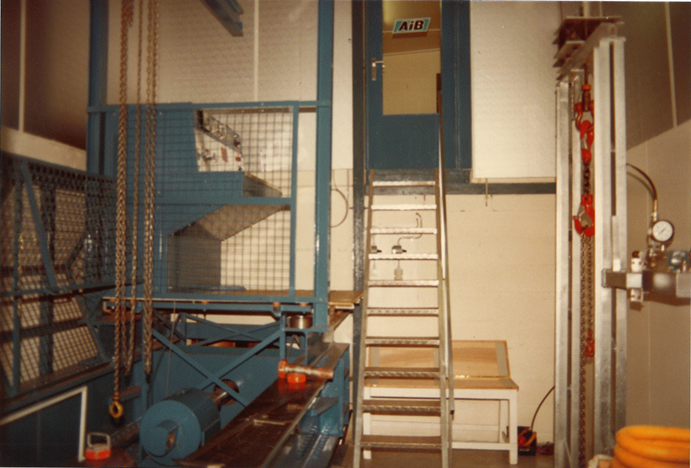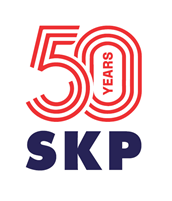From vision to official safety label
A workshop without safety rules or a production process without strict safety regulations is something we could no longer imagine today.
Despite the fact that the materials in our sector must unconditionally guarantee the safety of workers and passers-by, there was still much room for improvement in the early years of SKP in terms of regulations and safety guarantees.
For founder and former CEO Paul Put, the time had come to change that. “I want to be able to prove to our customers in black and white that the materials we distribute have been extensively tested for safety and are therefore really 100% safe,” he said.
It didn't stop at words. In 1983, he invited the inspection body AIB – the current Vinçotte – to explain his vision. They clearly had an ear for the proposal, because not much later the national VGS label (Safety Guarantee/Garantie Sécurité) was born. Only materials that passed extensive tests and fatigue tests could qualify for the label. "As a small player compared to the established values, we introduced something unique in our market. They will never do that again", says a proud Paul Put.

Own inspection program in collaboration with AiB
Always an extra eye on safety
A groundbreaking event. Materials that came onto the market via suppliers now had to be approved by definition. This was entirely the responsibility of the customer and had to be done before the products could be used. With the VGS label in hand, SKP customers could also get started right away. In addition to peace of mind, we also guaranteed our customers additional practical convenience.
In 2025, the VGS label will no longer be an issue. Material and product safety became an increasing priority within the European Union. This led to the introduction of the first CE Machinery Directive in 1995.
Current CEO Tom Put: “We can be very proud that we were the first to focus so intensively on the safety of our customers. The fact that Europe followed suit is the ultimate proof of that. Unfortunately, a single CE marking does not mean that a material is also 100% safe these days. And so, ironically enough, the CE label may have a counterproductive effect in certain cases.”
“That is why we continue to hammer hard on that safety nail, even 50 years after our foundation. Harder than anywhere else. While Europe effectively places the responsibility entirely with their manufacturers, we at SKP still leave nothing to chance. We know the manufacturers we work with inside and out. We have visited their company site and know perfectly well whether they comply with the safety regulations. If that is not the case, we simply do not do business with them.”
“In other words, our customers can rest assured more than ever when it comes to their safety during work,” concludes Tom Put.

Discover 50 years of SKP